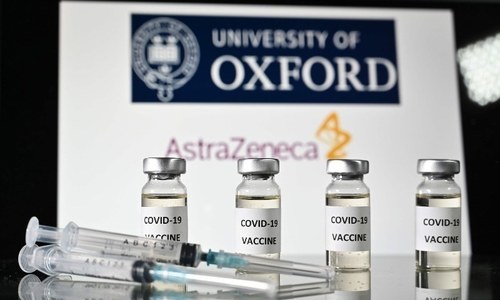ASTRAZENECA, the pharmaceutical giant which virtually became a household name during the Covid-19 pandemic, has admitted that its Covishield vaccine could cause rare side effects, including blood clots and low platelet count.
The pharma giant is being sued in a class action over claims that its vaccine, developed with the University of Oxford, caused death and serious injury in dozens of cases.
“It is admitted that the AZ vaccine can, in very rare cases, cause TTS (Thrombosis with Thrombocytopenia Syndrome). The causal mechanism is not known,” the company said in court documents, The Telegraph reported.
Covishield was developed by the British-Swedish company in collaboration with Oxford University, and produced by the Serum Institute of India. It was widely administered in over 150 countries.
Some studies conducted during the pandemic found the vaccine was 60 to 80 per cent effective in protecting against the novel coronavirus, according to The Independent.
But one of the complainants alleged that the vaccine caused him a permanent brain injury after he developed a blood clot, preventing him from working.
While the company has contested these claims, the court submission marks the first time it has admitted that the vaccine can cause side-effects that are characterised by blood clots and a low blood platelet count in humans.
“Further, TTS can also occur in the absence of the AZ vaccine (or any vaccine). Causation in any individual case will be a matter for expert evidence,” it added.
The admission by AstraZeneca runs counter to the company’s insistence in 2023 that it would “not accept that TTS is caused by the vaccine at a generic level”, according to The Independent.
Scientists first identified a link between the vaccine and a new illness called vaccine-induced immune thrombocytopenia and thrombosis (VITT) in March 2021.
The UK government has indemnified AstraZeneca against any legal action but has so far refused to intervene, according to The Telegraph.
According to the Council for International Organisations of Medical Sciences, “very rare” side effects are those reported in less than 1 in 10,000 cases.
Published in Dawn, May 1st, 2024















































Dear visitor, the comments section is undergoing an overhaul and will return soon.